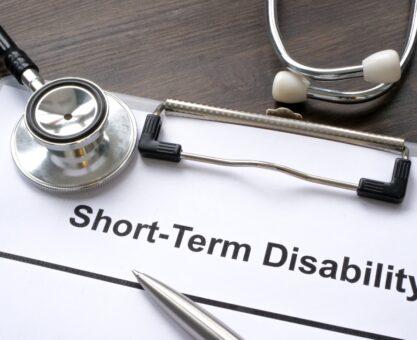An estimated 80% of private-sector employers offer their workers Short-Term Disability Insurance for non-work-related illnesses or injuries. However, federal employees do not have access to disability insurance through their government benefits.
If you’re unable to work for a month or longer due to an illness or injury that’s not work-related, you’d have to rely on your paid sick leave and annual leave to provide income during your recovery. If you run out of these types of paid leave and need more time to recover, you’re out of luck.
What Is A Short-Term Disability?
A short-term disability is a medical condition that causes you to be unable to perform your job for a period of up to one year. As a federal worker, if your disability is expected to last a year or longer, and you meet established years-of-service requirements under FERS/CSRS, you can file for disability retirement. If you don’t want to retire, you’re out of luck.
Over the years, there have been proposals put before Congress to add this type of coverage for federal employees but there hasn’t yet been any progress. This is why many federal employees have decided to purchase a private Short-Term Disability Insurance policy to cover any income loss.
Short-Term Disability Insurance Policies
A number of private insurers offer a range of Short-Term Disability Insurance policies that can be customized for federal employees. Depending on the policy you choose, this type of insurance can cover a wide range of events when the disability is temporary, from accidental injuries, surgeries, and illnesses to mental health issues.
The cost of premiums can range from relatively inexpensive to higher depending on the options and features you choose. Generally, you’re covered for 52 weeks. If your disability lasts more than one year, you can move to a long-term disability policy.
“Of course, the more income coverage you get, the higher the insurance premium.”
How It Works
Your coverage begins after the elimination period that’s specified in your policy. The elimination period is a certain amount of time that must pass before your benefit kicks in. Depending on the policy you buy, it can range from as little as seven days to 14 days or longer. The amount you receive also depends on the policy you purchase. Of course, the more income coverage you get, the higher the insurance premium.
It’s important to weigh the pros and cons of each policy feature to help ensure you’re not purchasing too much or too little coverage. To learn more, connect with an FRC® trained advisor who can help you compare private-sector Short-Term Disability Insurance policies and choose the best one for your needs.
























